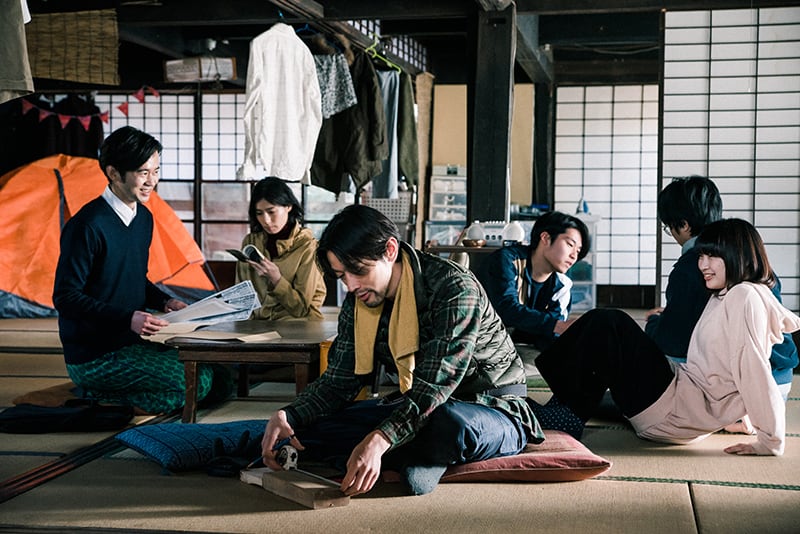The concept of the home invasion has been explored in a number of radically different films in Japanese cinema, from Takashi Miike's “Visitor Q” to Koji Fukada's “Harmonium”. Naoya Fujita adds another, radically different approach, by making the invader a public servant, in an effort that netted him the Best Picture Award from Skip City International D-Cinema Festival.
Stay screened at Skip City International D-Cinema Festival

A group of five people has occupied a traditional Japanese house, living there in a kind of commune where the only rule is that they accept everybody and that they all do their share in chores and contribute financially. However, the local town office wants them out of there, even though they have no particular reason to evict them, and has dispatched a number of public servants to ask them to leave, to no avail. The latest “agent” is Yajima, a young man who is introduced to the group by asking to use the bathroom, and not to pee for that matter.
As Yajima's clumsy nature undermines his mission, he also finds himself being dragged to the ways of the inhabitants, and particularly Suzuyama, a kind of a leader of the group. As time passes and Yajima is treated more as a guest than anything else, the dynamics of the group come to the fore, along with the fact that not everyone is happy with Suzuyama's overall demeanor. At the same time, and after being forced to stay the night there, the young public servant has a number of conversations with the female members of the group and comes somewhat closer to Maki, a young girl living there.
Naoya Fujita's approach to the whole concept is filled with hilarity from the beginning, with Yajima's hopelessness becoming evident even before he steps a foot inside the house. At the same time, the narrative also benefits from the fact that the presentation of the commune is not exactly idyllic, with Fujita highlighting the fact subtly, through details here and there, as with the whole concept of the ladder to the first floor.
A third element that stands out is the way Fujita and his DP have used the house to highlight all the different dynamics that take place among the members, with the kitchen, the dinner table and the stairs (once more) becoming a crucial part of the narrative.
This combination works very well for the film, carrying it for the whole of its 38 minutes, while the surprising ending concludes the short in the most entertaining fashion.
The acting is also on a very high level, with Takaki Uda as Suzuyama, Keita Yamashina as Yajima and Ruka Ishikawa as Maki highlighting both their differences and their chemistry in excellent fashion.
“Stay” follows most of the rules of the Japanese indie, but at the same time manages to stand out due to its script, its sense of humor and the quality of the overall production.















